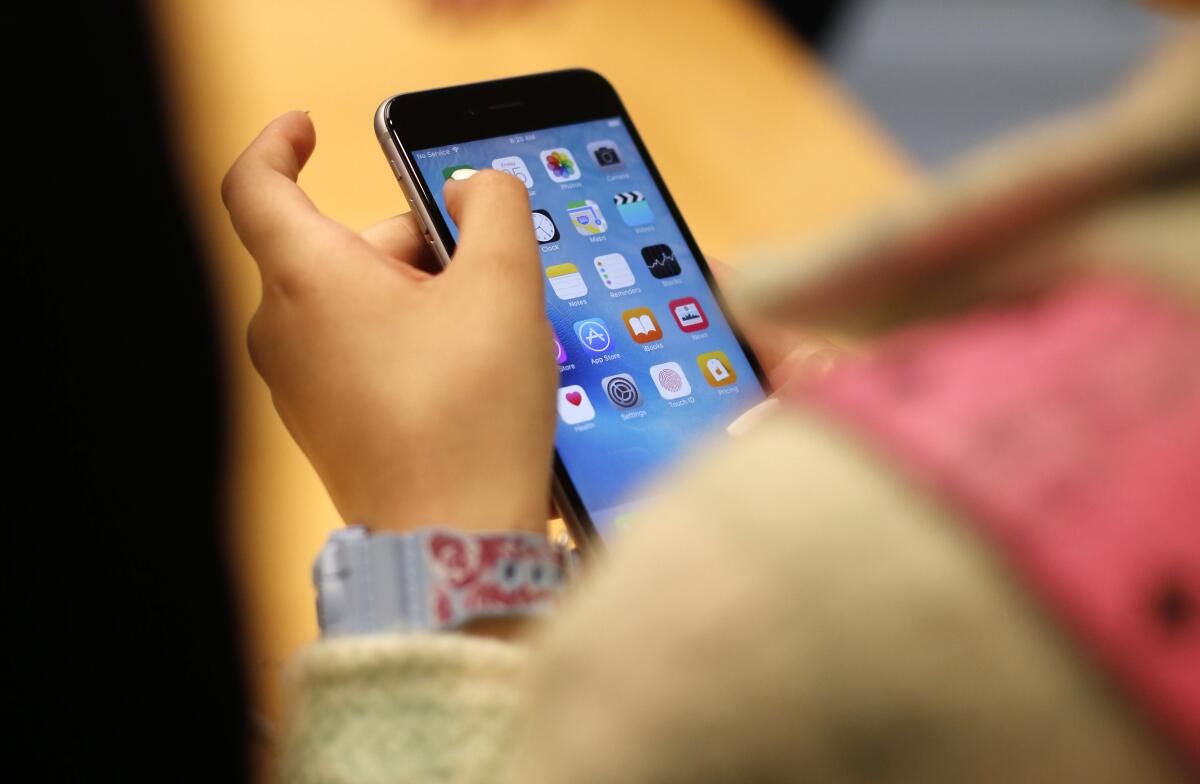Letters to the Editor: We don’t need brain scans to show phones are really bad for kids

To the editor: “Fearmongering” is bad, but the opposite can be far worse. A case in point is the recent op-ed article debating the cause of our country’s mental health crisis. (“Does social media rewire kids’ brains? Here’s what the science really says,” Opinion, April 26)
Depression, suicide and psychiatric hospitalization rates among youth “hockey sticked” upward around 2012 and kept rising. New York University social psychologist Jonathan Haidt’s recent book corroborated what we all felt: Smartphones and social media are major culprits.
The Times’ op-ed article, by a USC psychology postdoctoral researcher, questioned the theory, noting scans have not yet shown social media causing harmful “brain rewiring” in children. But the absence of one type of evidence cannot invalidate a mountain of corresponding deductions.
Haidt’s argument is simple: Children’s mental health problems skyrocketed the moment social media became ubiquitous. Screens are clearly stealing children’s focus and time away from the real-world play and interpersonal connections needed for emotional development. So far, no one has advanced a reasonably competitive theory, including the article’s author.
Unpacking psychological affliction without brain scans is not fearmongering. It is science warning everyone of what is harming our children’s psychology.
Brent Giannotta, Pasadena
..
To the editor: In 1992, I wrote a paper in graduate school titled “Guess who’s coming to dinner? Nobody.” My hypothesis was that young children at the time were not learning how to communicate because they had little practice. Families were not sitting down together at the dinner table, exchanging information, ideas, arguing and laughing.
I asked parents (both single and “traditional”) to fill out a questionnaire about their mealtime routines. I also did ethnographic studies at restaurants and cafeterias noting how families interacted, or not, during their meals.
What my small study showed was that hardly any families regularly sat down to share a meal. I felt there were real consequences for these children: They weren’t learning and practicing how to have a conversation.
I had no brain-scan studies — only my own observations of many young children and their families. Those children entered preschool with smaller vocabularies, fewer social skills, less ability to concentrate and little ability to delay gratification.
Since there are only 24 hours in a day, and young children are awake for 10 to 12 of them, when do they have meaningful interactions with real people if they are preoccupied with screens? Brain development suffers.
Op-ed article writer Anthony Vaccaro is correct that increased activity in internally focused thinking is not a bad thing. But what is it displacing? Parents should ensure that their young children have concrete, real-world experiences like eating a meal with people who are important to them.
Genie Saffren, Los Angeles






